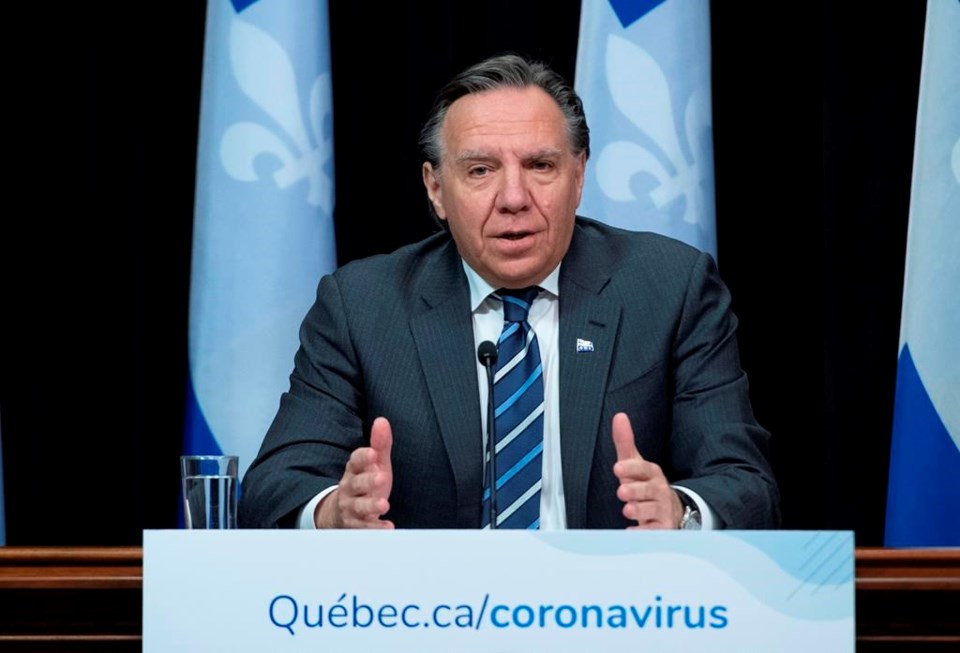MONTREAL — Unable to address a major shortage of front-line staff at its long-term care homes hit hard by COVID-19, Quebec asked the federal government Wednesday to send 1,000 Canadian Forces members to work at vulnerable residences.
Premier Francois Legault said the province has tried a number of different ways to address a shortfall of roughly 2,000 orderlies and nurses in the province's seniors homes, but hasn't been able to find enough people with a medical background to fill in.
"Unfortunately, we are not able to find them," Legault said. "We spoke with, I think, more than 1,500 medical specialists, but what we are looking for are full-time people."
Legault said the province has made a request to the federal government for soldiers — the third such request for military help since the pandemic started.
Just a day earlier, the premier had sounded optimistic he'd be able to find enough backups among the province's medical specialists, recent grads and some Canadian Forces personnel with medical training, announcing 1,000 spots had been filled.
But on Wednesday, Legault said only 350 doctors out of 2,300 who'd offered to help were willing to work full-time in long-term care homes for two weeks.
Legault said soldiers without medical training isn't ideal, but the province was out of options and they'll be able to help with non-medical tasks.
As of Wednesday, 898 of the province's total 1,134 COVID-19 deaths were long-term care or seniors' home residents. Of the 20,965 confirmed cases, 4,582 are among residents of long-term care homes.
Dr. Horacio Arruda, the province's director of public health, touched on those figures, suggesting Quebec's scrupulous accounting is behind the province's fatality numbers, which are the highest in Canada.
Arruda said most countries don't count deaths outside hospital settings and others don't include deaths that happen in seniors homes or long-term care networks, or classify them as something other than COVID-19.
"Quebec is probably one of the places in the world that most scrupulously calculates deaths related to COVID-19," Arruda said. "To make comparisons between countries that do not count in the same way is misleading."
Amid reports of equipment distribution problems and staffing woes, Legault told reporters Wednesday that outside the Montreal and Laval areas — which account for 74 per cent of COVID-19 deaths in the province — the situation elsewhere remains largely stable.
The premier said should those numbers hold, he would table a plan next week to see a gradual reopening of schools and businesses region by region, beginning with those less affected by the crisis.
Legault also reassured parents who aren't comfortable sending their kids back.
"I can also already say that the remaining weeks of the school until this summer won't be obligatory, so it means that parents won't be forced to send their children in open schools," Legault said.
The province will also address the relaunch of the economy next week.
"Our challenge will be to restart the economy without restarting the pandemic. And businesses, with this plan, will have time to prepare accordingly," Legault said.
Arruda said putting on a mask will be recommended in situations where physical distancing measures can't be respected.
HE also cautioned Quebecers that the novel coronavirus would likely remain an issue for the foreseeable future.
"It is possible that we'll still be talking about coronavirus in 2021, unfortunately, or even until 2022," Arruda said.
This report by The Canadian Press was first published April 22, 2020.
Sidhartha Banerjee, The Canadian Press

